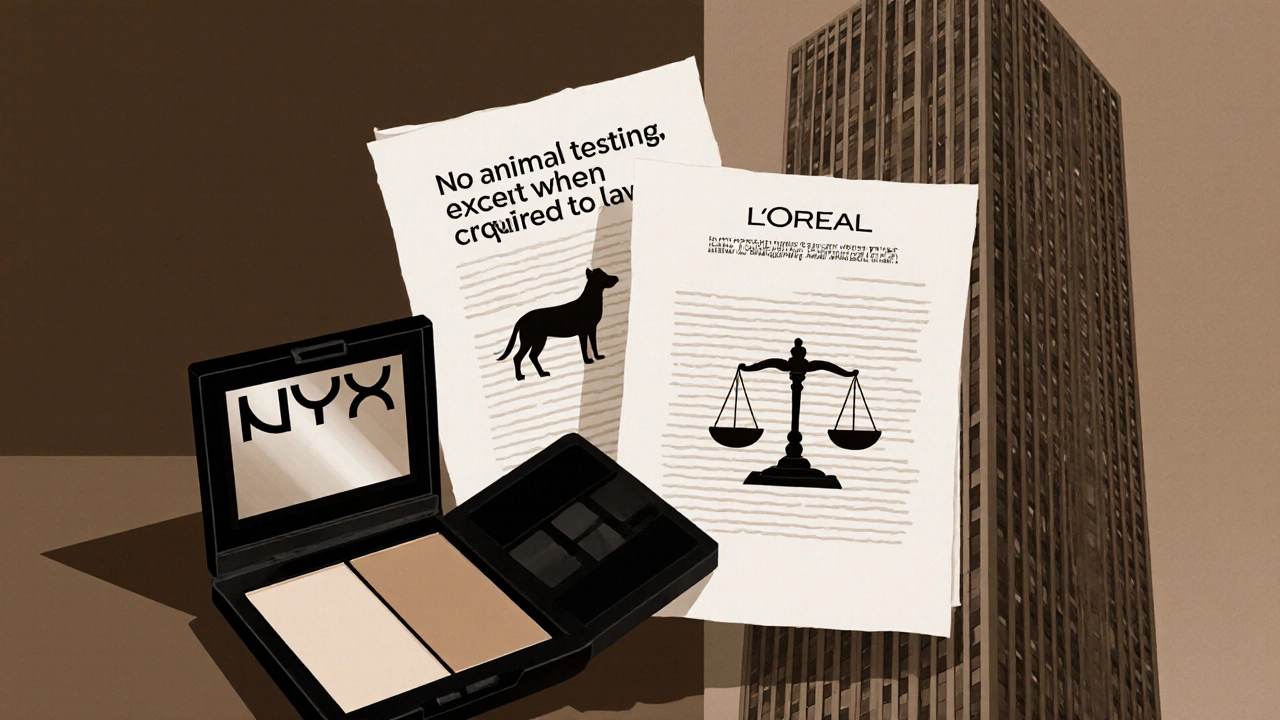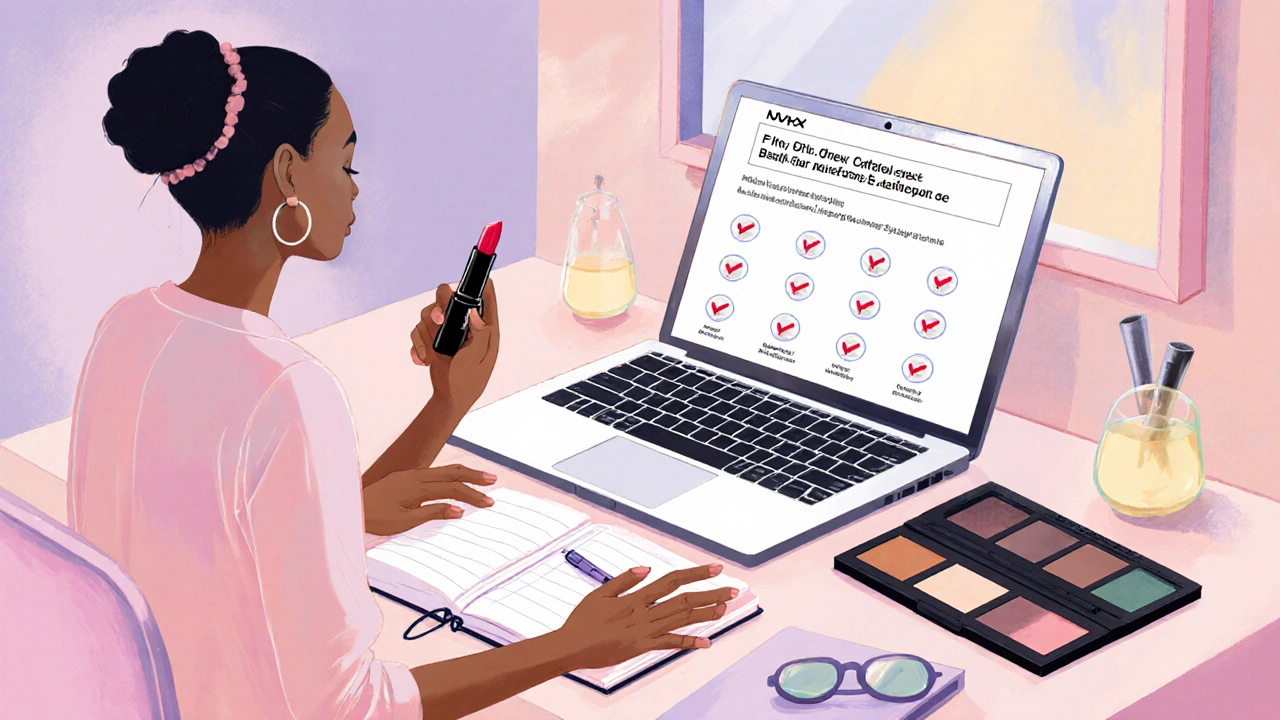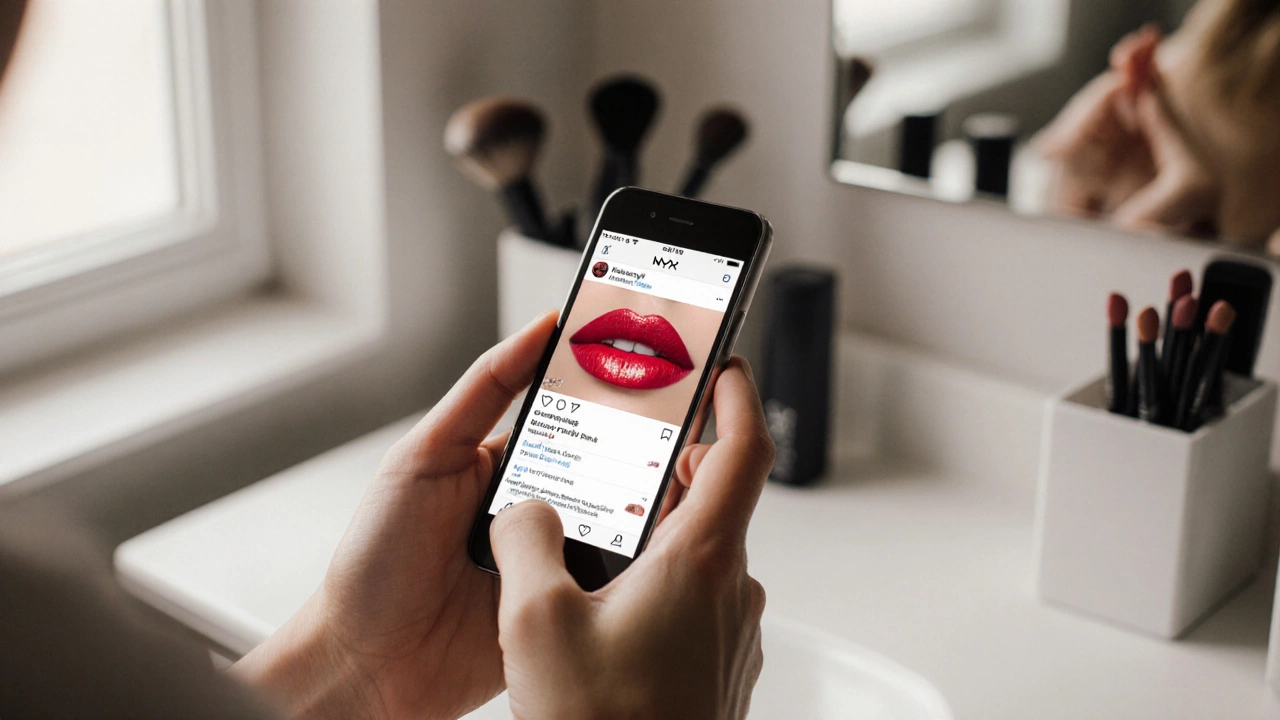You're scrolling through Instagram, spot a bold lip shade from NYX, and wonder - can I wear it without supporting animal testing? The short answer isn’t a simple yes or no. In 2025 the brand’s status sits in a gray area that depends on where you shop, which products you grab, and how you interpret the term cruelty‑free. Below we break down the facts, the policy, the parent company’s influence, and how you can make an informed choice.
Key Takeaways
- NYX Professional Makeup claims it does not test finished products on animals, but the parent company L'Oréal does conduct animal testing when required by law.
- The brand lacks an independent cruelty‑free certification such as Leaping Bunny or PETA‑approved.
- EU regulations and certain international markets still force occasional animal tests on ingredients.
- Consumers can verify cruelty‑free status by checking for certified logos, consulting third‑party databases, and reading ingredient‑specific statements.
- When in doubt, consider fully certified alternatives like Fenty Beauty or Urban Decay which carry Leaping Bunny logos.
What does “cruelty‑free” really mean?
Cruelty‑free cosmetics are products that are not tested on animals at any stage of development, including final formulation and raw ingredients. The definition sounds straightforward, but the beauty industry uses three main variations:
- No animal testing by the brand - the company itself never commissions tests.
- No animal testing by any supplier - includes raw material providers.
- Certification by a third‑party program - such as Leaping Bunny or PETA’s Beauty Without Bunnies.
Only the third option gives you an easy visual cue on packaging. Without a logo, you have to dig into policies, which is why many consumers stick to fully certified brands.
NYX Professional Makeup’s official stance
NYX Professional Makeup is a US‑based makeup brand owned by L'Oréal that markets color cosmetics and claims to be cruelty‑free. On its website NYX states, “We do not test our products on animals, except where required by law.” That caveat is the crux of the debate.
The brand’s FAQ adds that it complies with the EU Cosmetics Regulation, which mandates animal testing for certain ingredients if a government request is made. In practice, this means NYX may allow testing on a case‑by‑case basis, even though the finished products themselves are not directly tested.
Who’s pulling the strings? L'Oréal’s testing record
L'Oréal Group is a French multinational that owns more than 30 beauty brands, including NYX, Maybelline, and Lancôme. Historically, L'Oréal has faced criticism for animal testing, especially in markets like China where the Ministry of Health once required animal data for imported cosmetics.
In 2022 L'Oréal announced a “No animal testing” pledge for the EU, US, and Canada, but it still complies with mandatory testing requests in countries where it is legally required. The group’s 2024 sustainability report reveals that 2% of its product lines underwent animal testing that year, primarily due to regulatory pressure.
Because NYX is a subsidiary, its policies are tightly linked to L'Oréal’s broader strategy. If the parent company conducts a test for an ingredient, NYX’s claim of “no animal testing” becomes technically inaccurate.

Certification bodies and why NYX’s lack of logo matters
Leaping Bunny is a certification program run by Cruelty‑Free International. Brands that earn the badge must prove that neither the finished product nor any ingredient has been tested on animals, and they must submit annual audits.
PETA (People for the Ethical Treatment of Animals) maintains the “Beauty Without Bunnies” list, which flags brands that are truly cruelty‑free. PETA also runs a verification program similar to Leaping Bunny.
NYX does not carry either logo. The brand’s website lists no third‑party certification, and neither organization currently includes NYX in its approved lists. This absence is a red flag for shoppers who rely on visual cues.
Recent regulatory shifts and their impact
In 2023 the European Union adopted stricter rules that require a full dossier of alternative‑method data before any animal test can be approved. While the law reduced the number of mandatory tests, it did not eliminate them entirely. In 2024 the Chinese government eased its compulsory testing rule for imported cosmetics, but the requirement still applies to certain “high‑risk” categories like hair dyes and sunscreens. NYX’s product range includes a few high‑risk items, meaning occasional testing could still occur.
Additionally, the US Food and Drug Administration (FDA) announced in early 2025 a voluntary “Animal‑Free Cosmetics” label, encouraging brands to self‑certify. NYX has not adopted this label, opting instead to keep its vague disclaimer.
How to verify cruelty‑free status yourself
Because NYX’s claim rests on a legal exemption rather than independent certification, here’s a quick checklist you can use before buying:
- Look for an official cruelty‑free logo (Leaping Bunny, PETA, Choose Cruelty‑Free). If it’s missing, proceed to the next steps.
- Check the brand’s FAQ or “Animal Testing Policy” page for exact wording. Avoid brands that say “except where required by law.”
- Consult third‑party databases such as Logical Harmony or PETA’s Beauty Without Bunnies for up‑to‑date listings.
- Identify the product type. Lipsticks, eyeliners, and powders are less likely to be subject to mandatory tests than sunscreens or hair dyes.
- When shopping online, read user reviews. Community forums often flag recent animal‑testing scandals.
If any of these steps raise doubts, consider switching to a fully certified alternative.

Comparison: NYX vs. Other Popular Brands (2025)
| Brand | Owned by | Certification | Animal testing policy (2025) |
|---|---|---|---|
| NYX Professional Makeup | L'Oréal Group | None (no Leaping Bunny or PETA logo) | Claims no testing except when legally required. |
| Fenty Beauty | Rihanna (independent) | Leaping Bunny certified | Never tests on animals; ingredients also certified. |
| Urban Decay | L'Oréal Group | Leaping Bunny certified (since 2022) | Fully cruelty‑free; no animal testing on any stage. |
| Maybelline | L'Oréal Group | None | No animal testing on finished products; follows parent company policy. |
| e.l.f. Cosmetics | Independent | Leaping Bunny, PETA certified | 100% cruelty‑free, vegan‑friendly. |
Notice that two other L'Oréal‑owned brands-Urban Decay and Fenty Beauty-have earned Leaping Bunny certification, whereas NYX has not. This suggests that the parent company can support certified cruelty‑free lines, but NYX has chosen a different market positioning.
Frequently Asked Questions
Is NYX completely animal‑testing free?
No. NYX states it does not test its finished products on animals, but it may allow testing when required by law or when a supplier’s ingredient is mandated to be tested.
Does NYX have any cruelty‑free certifications?
As of October2025, NYX does not display a Leaping Bunny, PETA, or Choose Cruelty‑Free logo on its packaging.
Can I trust NYX’s website disclaimer?
The disclaimer is legally accurate, but it leaves room for animal testing under specific circumstances. If you need a guarantee, choose a brand with an independent certification.
How does the EU regulation affect NYX?
EU rules require a full dossier of alternative‑method data before any animal test can be approved, reducing but not eliminating mandatory testing. NYX must comply when selling in the EU, so occasional tests may still happen for certain ingredients.
What are the best cruelty‑free alternatives to NYX?
If you love the same pigment payoff, try Fenty Beauty (Leaping Bunny) or e.l.f. Cosmetics (both cruelty‑free and vegan). Urban Decay also offers comparable palettes with full certification.
Next steps for the ethically‑mindful shopper
If you decide NYX’s ambiguous stance doesn’t align with your values, here’s a quick action plan:
- Make a list of the specific NYX products you already own.
- Check each item’s ingredient list on the brand’s official site for any known animal‑tested components.
- Replace any high‑risk items (e.g., sunscreens, hair dyes) with certified alternatives.
- Subscribe to a cruelty‑free database newsletter to stay updated on policy changes.
- Share your findings on social platforms; community pressure often pushes brands toward certification.
Remember, cruelty‑free isn’t just a label-it’s a commitment to transparency. By digging a little deeper, you can keep your makeup bag beautiful and ethically sound.
